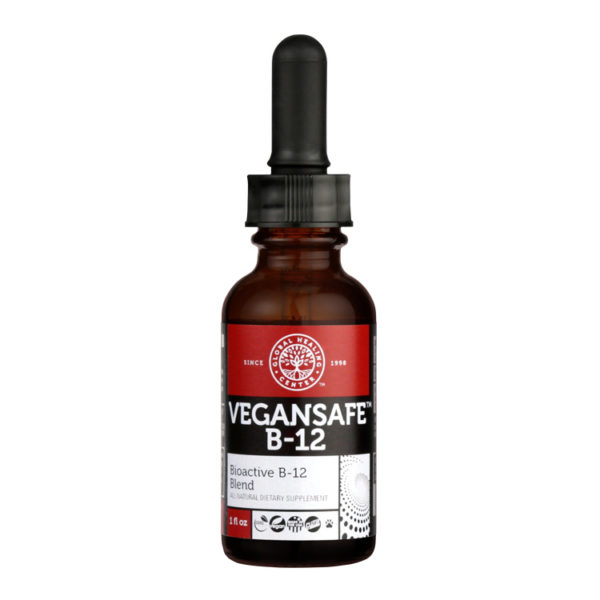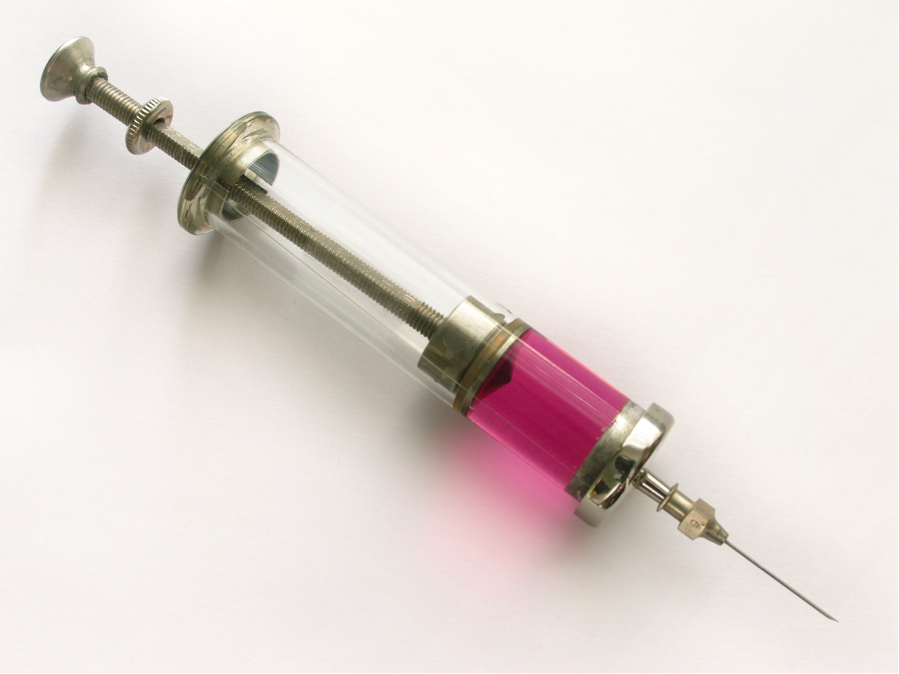Vitamin B-12 is to the human body what gasoline is to a car; without it, you’re not getting anywhere. A diet that includes meat, fish, and dairy products can provide natural sources of B-12; however, these foods typically carry a heavy toxic load. Vegetarians and vegans can suffer from B-12 deficiency, so can meat eaters, making B-12 deficiency a common problem many people solve with supplementation or a B-12 injection.
For those who don’t care for a shot, dietary supplementation like VeganSafe™ B-12, with the two active forms of B-12, methylcobalamin and adenosylcobalamin, may be as effective as a B-12 shot.
What is a Vitamin B-12 Shot?
The shot delivers a high dose of therapeutic B-12, usually in the form of cyanocobalamin or hydroxocobalamin. For those who don’t care for a shot, oral supplementation with the two active forms of B-12, methylcobalamin and adenosylcobalamin, may be as effective as a B-12 shot. [1]
Those who cannot digest or absorb B-12 as a result of inherited genetics or damage to the stomach and small intestine require more than can be absorbed from sublingual supplementation. In situations where a high dose is needed, or where injection is the only option, the B-12 shot is used. In some cases, B-12 shots are used as an energy booster, since B-12 plays a critical role in cellular energy production.
Reasons for a B-12 Shot
Vitamin B-12 deficiency symptoms include depression and mood disorders, fatigue, memory failure, anemia, low blood pressure, and high homocysteine levels. While the shot addresses B-12 deficiency, it may also be prescribed to boost energy, as a therapy for depression, or to drive cognitive function. Researchers are also exploring its potential as a therapy for bipolar disorders, shaky leg syndrome, and autism.
Getting the B-12 Shot
Before getting the shot, make sure to inform your doctor of any allergies, nutritional supplements you may be taking, or if you’ve recently consumed large amounts of alcohol. At the appointment, the doctor or healthcare professional delivers the shot directly into muscle, usually into the thigh or upper arm, for easy absorption into the bloodstream.
B-12 Shot Side Effects
The dosage amount and the type of B-12 used appears to have some control over side effects. As a note, the common side effects of excess vitamin intake include flushing, diarrhea, nausea, and vomiting. Here are the side effects you might experience from the two common B-12 shots:
Hydroxocobalamin
This form of B-12 is the one we find in our food. When delivered as a B-12 shot, mild side effects may include soreness at the injection site, itching, diarrhea, and swelling. Serious side effects include muscle cramping, weakness, or an irregular heartbeat. Although rare, some very serious side effects are chest pain, shortness of breath, slurred speech, sudden vision changes, and weakness on one side of the body. You should always contact your doctor immediately if you experience any of these reactions.
Cyanocobalamin
This is the synthetic version of vitamin B-12 used in supplements and in the B-12 shot. Mild side effects of diarrhea and swelling can occur. Serious side effects include muscle weakness, extreme thirst, confusion, shortness of breath, headache, exhaustion, reddening of the skin, and a fast or irregular heartbeat. Very serious side effects such as chest pain and difficulty breathing are rare. You should always contact your doctor immediately if you experience any of these reactions. Contact your doctor immediately if you experience any symptoms of allergic reaction such as itching, swelling, severe dizziness, rash, or difficulty breathing after receiving a B-12 shot. The best way to protect against side effects is communication. Make sure your doctor knows all the medications and drugs (including alcohol) you may have taken prior to getting the shot. Information on your family’s medical history also helps. Do you get B-12 shots? What has your experience been? Let us know!
If you’re looking for a supplement that can improve B-12 deficiency, check out VEGANSAFE B-12 at the AlrightStore.

References (1)
- Thakkar K1, Billa G2. Treatment of vitamin B12 deficiency-Methylcobalamine? Cyancobalamine? Hydroxocobalamin?-clearing the confusion. Eur J Clin Nutr. 2014 Aug 13. doi: 10.1038/ejcn.2014.165.
†Results may vary. Information and statements made are for education purposes and are not intended to replace the advice of your doctor. Global Healing Center does not dispense medical advice, prescribe, or diagnose illness. The views and nutritional advice expressed by Global Healing Center are not intended to be a substitute for conventional medical service. If you have a severe medical condition or health concern, see your physician.





Leave A Comment